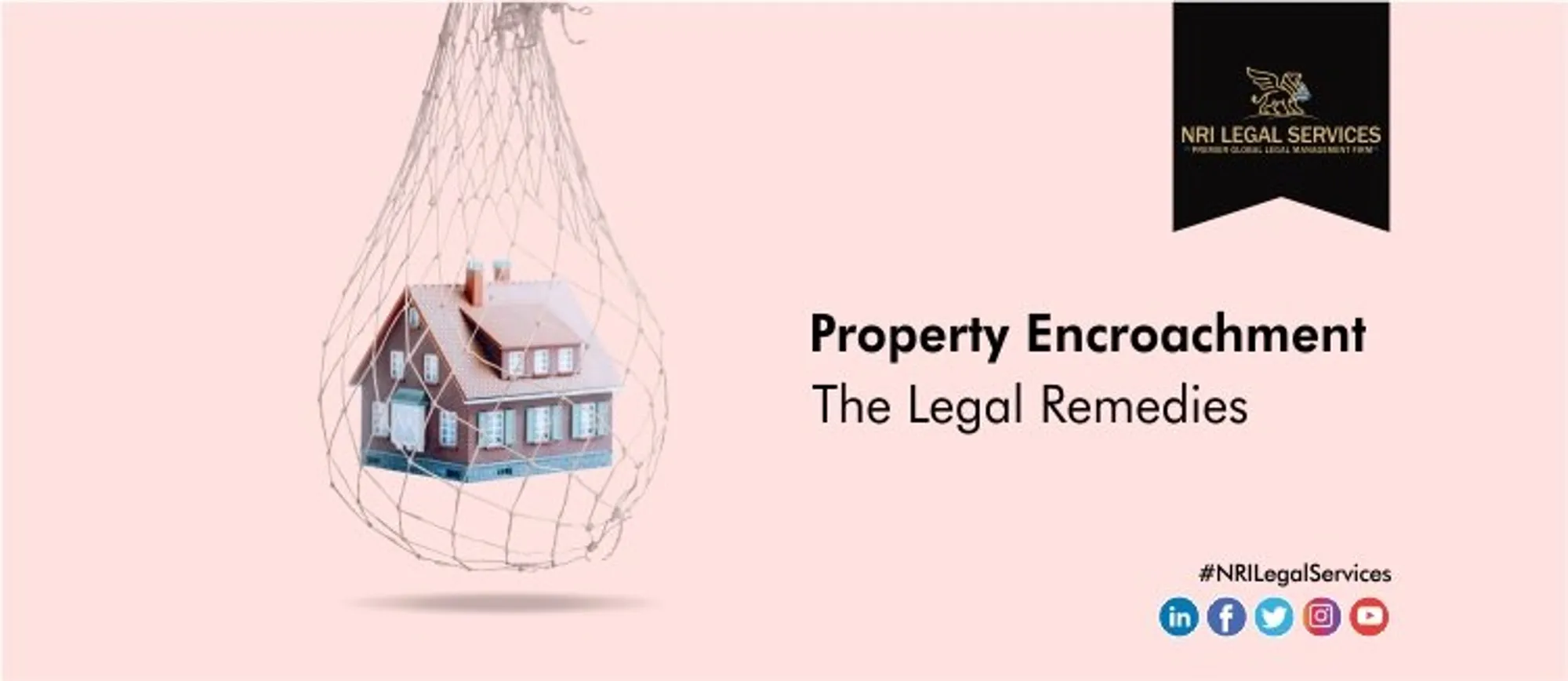A person buys a property either for investment or for own use. In both cases, one wants to reap the benefits which flow to the owner of the property. At the same time, it is vital that the owner remains vigilant and protect the property from illegal/unauthorized intrusions. In case the land/property is left unattended, especially as in case of NRIs, the chances are high that the unlawful occupants will take advantage of the same and encroach upon the property.
Table of Contents
Property encroachment occurs when a person without any authority or consent:
- occupies the property or
- constructs some structure over the property of another person (owner)
Recommended reading: Repatriation of funds from NRE/NRO Account
An addition made to one’s property which crosses the boundary and falls upon the property of another person in violation of his rights is property encroachment. For instance, a neighbour constructs a balcony /shed /garage which extends to the adjacent property.
Property encroachment can be intentional or unintentional. It is unintentional when boundaries are ambiguous. An action lies against the encroacher.
There is a difference between trespass and encroachment. In trespass, it is the unauthorized interference of a person in the property. It is an unlawful entry into the property of another person. Construction of a structure etc. is not essential. On the other hand, property encroachment is not just an illegal entry but also changing the structure/status of the property.
Recommended reading: Reserve Bank of India Guidelines on NRIs Remittance
The rights and remedies available to the owner against encroacher are the same as in trespass.
- Trespass is both a civil and a criminal wrong. Under the Indian Penal Code, trespass with criminal intent is an offence. The law permits the owner to use force against the encroacher if justified by the circumstances. He can cause grievous hurt or kill the intruder.
- The owner has the right to protect his property by stopping the encroacher from invading his land.
- The owner can lodge FIR for criminal trespass.
- The owner can file a suit for injunction. It is an order of the Court vide which the wrongdoer is asked to perform or restrained from performing a particular act. The directive can be temporary or permanent.
- The owner may also seek damages. It is an amount paid as compensation to the owner for loss suffered by him. Damages for mental harm are also permissible.
Recommended reading: How to activate a dormant bank account?
There are many factors which determine the relief to be granted. The court orders removal of encroachment if the injury caused to the owner is irreparable. Sometimes the encroachment is innocent. The hardship caused to the encroacher by removing the encroachment is much more than the loss to the owner. Then the Court may not order the removal of encroachment.
The owner must possess title deeds and survey maps of the area. It will help to establish his claim against the encroacher.
Prevention is better than cure. Therefore, it is advised to
- Regularly monitor the property
- Be watchful towards the acts of the neighbours.
- Any settlement for allowing the use of one’s area by the neighbour should preferably be through a written agreement.
NRI Legal Services is now on Telegram. Join NRI Legal Services channel in your Telegram and stay updated.

